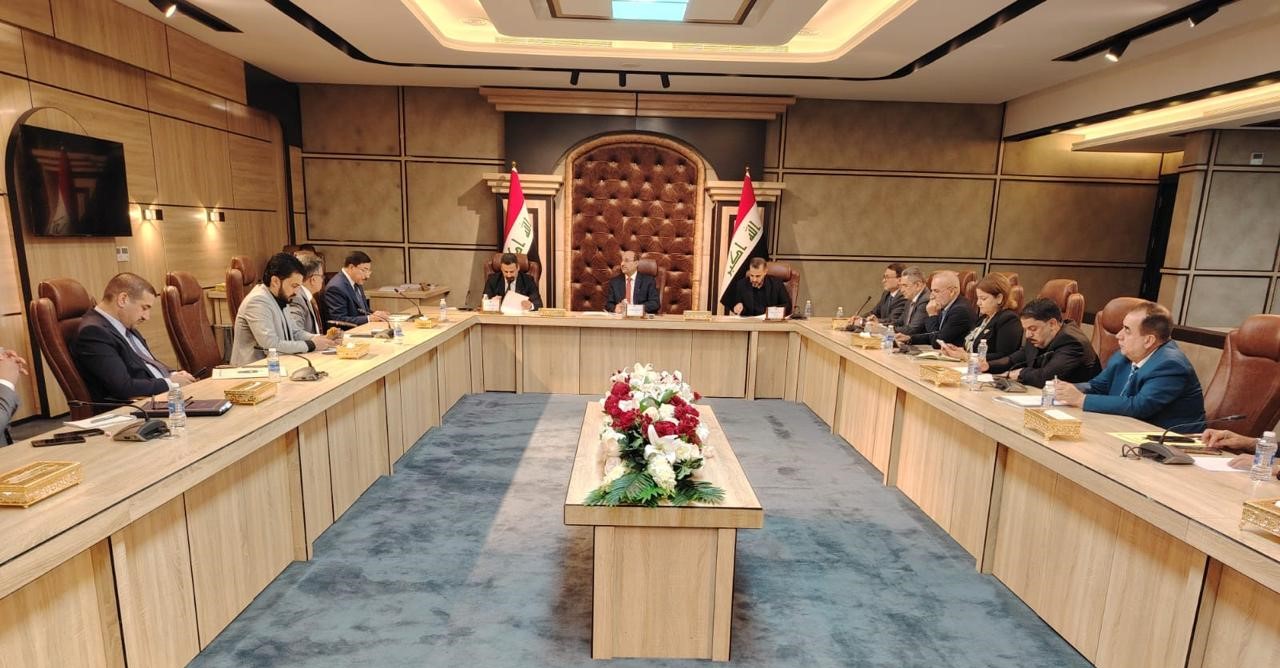Parliamentary Finance: There is a duality in US sanctions imposed on Iraqi banks
 Shafaq News / The head of the Parliamentary Finance Committee, Atwan Al-Atwani, confirmed on Sunday, with the governor of the Central Bank, that the fluctuation of the dollar exchange rate creates a state of economic and financial instability, especially with the increasing gap between the official selling price of the dollar and the parallel market price, stressing the existence of duality in imposing US sanctions on Iraqi banks.
Shafaq News / The head of the Parliamentary Finance Committee, Atwan Al-Atwani, confirmed on Sunday, with the governor of the Central Bank, that the fluctuation of the dollar exchange rate creates a state of economic and financial instability, especially with the increasing gap between the official selling price of the dollar and the parallel market price, stressing the existence of duality in imposing US sanctions on Iraqi banks.
Al-Atwani said in a statement received by Shafaq News Agency, while chairing the committee meeting that hosted the Governor of the Central Bank of Iraq, Ali Mohsen Al-Alaq, to discuss the monetary policy file in the country, that “the increase in the gap between the official price of selling the dollar and the parallel market price creates a state of economic and financial instability.”
He stressed that “the stability of the exchange rate is a central issue for the state,” noting that “there is a duality in the issue of imposing US sanctions between Iraqi banks and correspondent banks, which requires the management of the Central Bank of Iraq to move effectively and address this crisis, in addition to tightening control over the work of private banks, in a way that ensures the integrity of all their procedures and work.”
Al-Atwani stressed that “the housing initiative has achieved positive results, and therefore we are pushing towards supporting and continuing it in order to expand the list of those covered by housing loans and contribute to resolving this crisis,” indicating that “the stability of the monetary market has a direct impact on the general financial situation,” adding that “the labor market is unstable in terms of selling currency, which casts a shadow on the general monetary situation.”
The meeting also reviewed a number of issues, most notably the electronic platform and the procedures related to it in order to facilitate work and economic stability, in addition to the issue of banks and the mechanism for developing the money transfer process.
In turn, the Governor of the Central Bank, Ali Mohsen Al-Alaq, provided a full briefing on the reasons for the fluctuation of the exchange rate, the mechanism of the electronic platform and its role in controlling internal and external trade, the housing initiative file, US sanctions on Iraqi banks, and the status of the cash reserve of hard currencies at the Central Bank of Iraq.
Al-Alaq explained that “our foreign currency reserves are sufficient to create balance in the market,” indicating that “the Central Bank sells more than 250 million dollars daily to meet the requirements of foreign trade.”
Al-Alaq stated during the meeting that 85% of foreign transfers are currently taking place between Iraqi banks and correspondent banks, without going through the US Federal Reserve.
He pointed out that “the housing initiative is of great importance to the bank,” noting that “the volume of loans granted within the real estate initiative amounts to 10 trillion dinars,” stressing that “the Central Bank is now heading to cover the financing of the construction of 23,000 housing units, and priority will be given to completed housing complexes.”
The meeting also witnessed important interventions by committee members regarding banks’ initiatives to provide real estate and housing loans, and ways to facilitate procedures and ease conditions for citizens in the process of applying for housing units in complexes.
Shafaq.com
